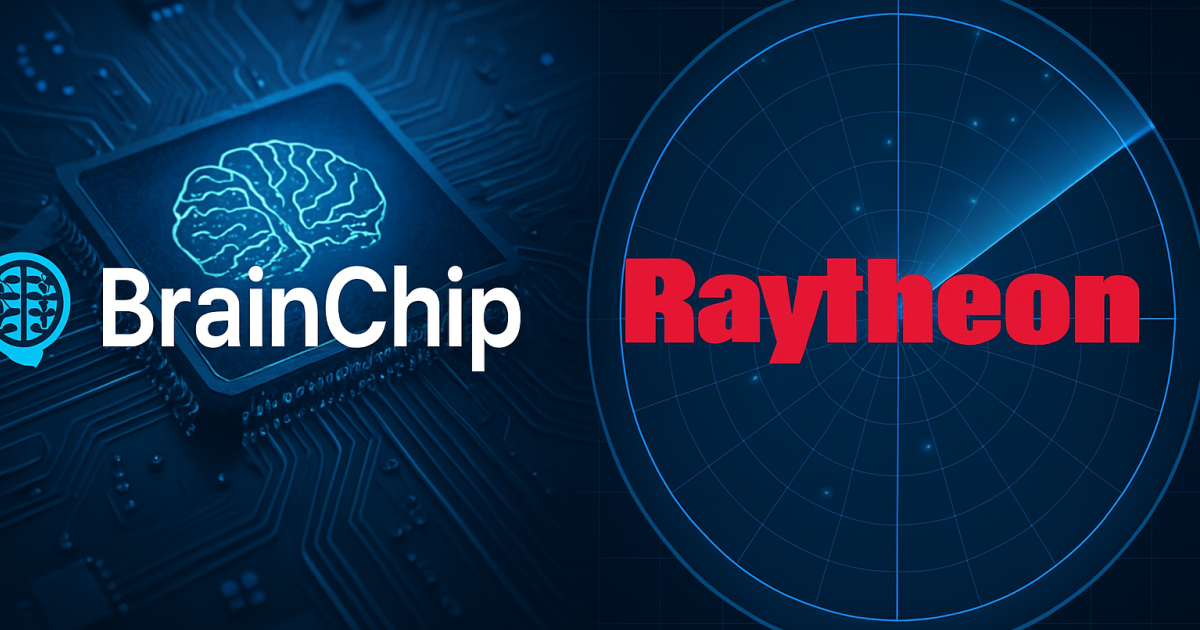
As I was looking at my email inbox, one email, in particular, caught my eye. It was about BrainChip announcing a partnership with Raytheon Company, an RTX (NYSE: RTX) business, to service a contract for $1.8M from the Air Force Research Laboratory on neuromorphic radar signaling processing.
The Air Force Research Labs contract – listed under the topic number AF242-D015 – is titled, “Mapping Complex Sensor Signal Processing Algorithms onto Neuromorphic Chips.”
Given my recent rant about one-sided press releases, I was concerned that I would have more questions than answers, but first I need a refresher about neural networks. Decades ago, neural networks had to network several computers. However, it was fundamentally a software-driven solution, so it’s logical that the software made it on to a single chip.
This is where BrainChip comes in.
BrainChip was the first to market with its Akida event-based AI processor.
“The Akida uses neuromorphic principles to mimic the human brain, analyzing only essential sensor inputs at the point of acquisition, processing data with unparalleled efficiency, precision, and economy of energy. Akida uniquely enables Edge learning locally to the chip, independent of the cloud, dramatically reducing latency while improving privacy and data security. Akida Neural processor IP, which can be integrated into SoCs on any process technology, has shown substantial benefits on today’s workloads and networks.”
Applications can be found in connected cars, consumer electronics, and industrial IoT.
“BrainChip is proving that on-chip AI, close to the sensor, is the future.”
In reference to the Air Force Research Lab, the press release explains the focus of the research.
“The project focuses on a specific type of radar processing known as micro-Doppler signature analysis, which offers unprecedented activity discrimination capabilities. Neuromorphic hardware represents a low-power solution for edge devices, consuming significantly less energy than traditional computing hardware for signal processing and artificial intelligence tasks. If successful, this project could embed sophisticated radar processing solutions in power-constrained and thermally constrained weapon systems, such as missiles, drones, and drone defense systems.”
The press release continues: “BrainChip’s Akida processor is a revolutionary computing architecture that is designed to process neural networks and machine learning algorithms at ultra-low power consumption, making it ideal for edge computing applications. The company’s neuromorphic technology improves the cognitive communication capabilities on size, weight, and power & cost (SWaP-C)-constrained platforms such as military, spacecraft and robotics for commercial and government markets.”
“Radar signaling processing will be implemented on ever-smaller mobile platforms, so minimizing system SWaP-C is critical,” said Sean Hehir, CEO of BrainChip. “This improved radar signaling performance per watt for the Air Force Research Laboratory showcases how neuromorphic computing can achieve significant benefits in the most mission-critical use cases.”
And now for Raytheon’s role: It will deliver services and support as a partner with BrainChip for the completion of the contract award. In other words, Raytheon will manage military protocols while BrainChip focuses on tech.
At least in this press release I understood who does what.
Edited by
Erik Linask





